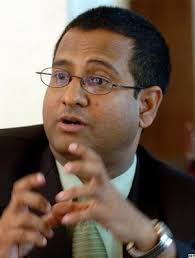Iran: Most Recent Backlash Against Baha’is Exposes Authorities’ Extreme Intolerance for Religious Minority Group

Two United Nations human rights experts today said that the current wave of incitement of hatred of the Baha’i community reflected in speeches made by religious, judiciary and political officials in the Islamic Republic of Iran “has exposed the Iranian authorities’ extreme intolerance for adherents of the religious minority group.”
“Verbal attacks by state officials against an already vulnerable community like the Baha’is are extremely troubling not only because they directly violate Iran’s international legal obligation not to discriminate against its citizens, but because they could encourage discrimination and possibly acts of violence against this group by others,” stated the UN Special Rapporteur on the situation of human rights in Iran, Ahmed Shaheed.
The latest public backlash against the Baha’i community in Iran began after the daughter of former President Akbar Hashemi Rafsanjani, Faezeh Hashemi, visited the home of Fariba Kamalabadi on 13 May after Ms. Kamalabadi had been granted a temporary release from prison. Ms. Kamalabadi is one of seven former Baha’i leaders who have been imprisoned in the country since 2008 for peacefully exercising their faith.
On 18 May, the Judiciary’s spokesman, Gholamanhossein Mohseni Ejei, announced it would pursue charges against Ms. Hashemi, who became acquainted with Ms. Kamalabadi during her own brief imprisonment in Evin Prison in 2012, because her decision to meet the political prisoner constituted a “very ugly and obscene act.”
Since mid-May, 169 religious, judiciary and political leaders have allegedly openly spoken or written against the Baha’i community in Iran. Between 18 May and 4 June,Friday prayer sermons by clerics appointed by the Office of the Supreme Leader reportedly attacked, condemned, or criticized beliefs espoused by members of the Baha’i community, declaring that the Baha’i faith was essentially a fabricated political party masquerading as a religion.
After the Friday sermons, a number of newspapers published articles and opeds linking members of the Baha’i community with Iran’s enemies and branding them “Zionists”, encouraging violence. On 4 June, for example, Tasnim News Agency reminded its readers that the Bahá’í faith was created by Britain and Israel, that considering “Bahaism” a legitimate religion amounted attacking the Hidden Imam, and that individuals who are in contact with this sect should face criminal prosecution.
“Comments like this are especially egregious when so many Baha’is are already the targets of arbitrary arrests, home raids, confiscation and destruction of property and businesses, denial of employment, and restricted access to education,” Mr. Shaheed stressed. “They plainly demonstrate the state’s ongoing and systematic persecution of this community.”
There are currently at least 72 Baha’is in prison solely because of their religious beliefs and practices.
The UN Special Rapporteur on freedom of religion or belief, Heiner Bieelfeldt, noted that “the Baha’is have always been a marginalized and vulnerable group devoid of proper legal protections because Iran’s constitution does not officially recognize them as religious minorities.”
The increasingly hostile rhetoric against the Baha’i community goes beyond stripping its members of rights and treating them like second-class citizens,” Mr. Bielefeldt said. “It places the community before a very dangerous precipice where its very existence may be threatened.”
The expert recalled that the Iranian government has been a party to the International Covenants on Civil and Political Rights and on the Economic, Social and Cultural Rights. “These covenants not only protect people’s right to freedom of religion, which is a non-derogable right, but also their right to liberty and security of person,” he said.
“After years of blatant prejudice against the Baha’i community, the latest round of attacks and incitement to hatred is truly shocking and utterly unacceptable,” Mr. Shaheed said.
The Special Rapporteurs urged the Iranian authorities “to put an end to all forms of discrimination and incitement against the Baha’is and to thoroughly investigate, and prosecute, individuals who perpetrate these acts regardless of rank or position.”
The UN experts also renewed their call on the Government of Iran to end state-sanctioned discrimination against the group. They urged the authorities to review the cases of the detained 72 Bahia’s currently in prison for organizing religious gatherings, advocating for the right to education, or managing the religious and administrative affairs of their community.